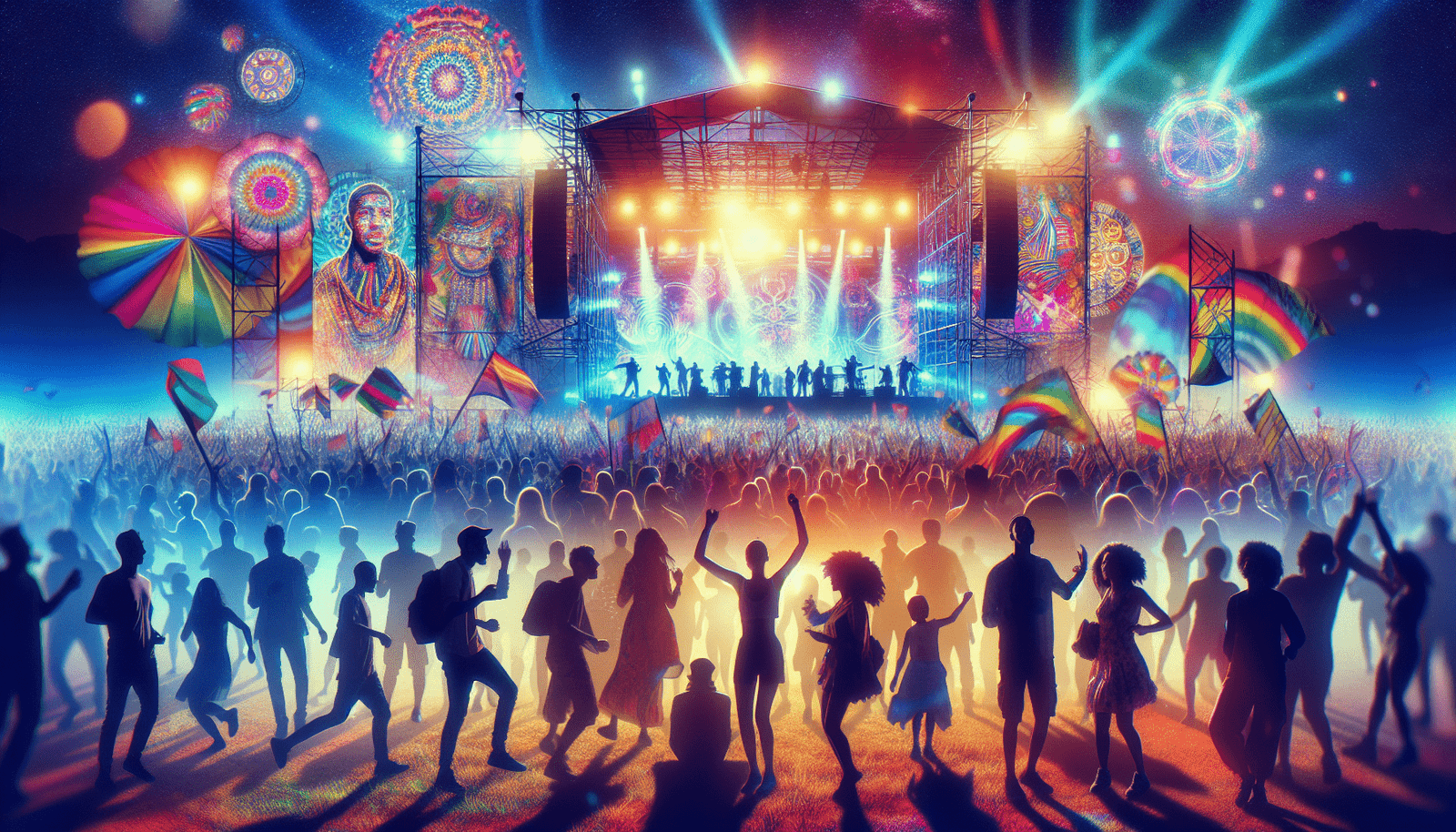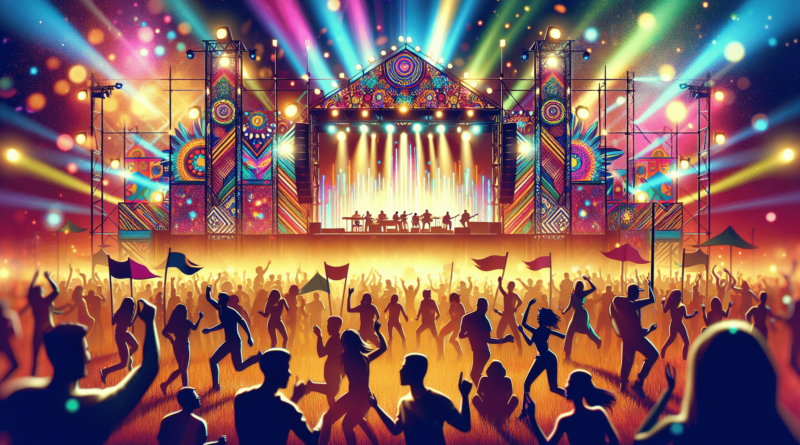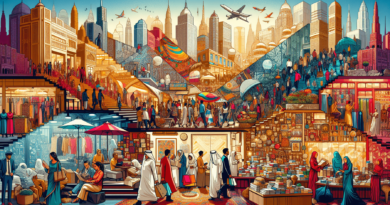Music Festivals
Standing in a crowd of music enthusiasts, you can feel the anticipation building as the next act prepares to take the stage. “Music Festivals” is your doorway to an unforgettable adventure, exploring each note and tune of the world’s most celebrated performances. From Jazz Fest in New Orleans, to Glastonbury in the UK, this article strikes the right chord with festival-goers and music lovers alike. The rhythms pulsating from every corner of the globe intertwine with stories of love, unity, and pure excitement in a distinct narrative that is uniquely born out of the moods and elements of music festivals. Get ready to rock, groove, tap, and spin through the world’s venues in this sonic journey!

History of Music Festivals
Music festivals are not a new phenomenon, having roots dating back thousands of years.
Origins and early days
The first semblance of music festivals can be traced all the way back to Ancient Greece, where music, dance and sports formed a key part of religious ceremonies and cultural celebrations. Fast forward to the 20th century, a key turning point was the Newport Jazz Festival in 1954 in the United States, which marked the advent of large-scale music events.
Historical significance
Music festivals hold great historical, cultural and social significance. They have served as platforms for political expression and social change, fostering a sense of community and unity amongst attendees. In the 1960s and 70s, festivals like Woodstock and Monterey Pop Festival became symbols of counterculture, advocating peace, love and equality.
Changes throughout the years
Over the years, music festivals have evolved considerably. Beyond music, they often incorporate other elements like art, fashion, food and more recently, digital experiences. Aimed at offering a holistic sensory extravaganza, they are continuously redefining the boundaries of live entertainment experiences.
Types of Music Festivals
Music festivals can be categorised into a variety of types, each offering a unique experience to the attendees.
Genre-specific Festivals
These types of festivals are defined by a specific musical genre. Festivals like Download and Hellfest cater to rock and metal fans, while Ultra Music Festival and Electric Daisy Carnival are a haven for electronic music fans.
Art and Music Festivals
These are eclectic events intertwining music, visual arts, theatre and dance, offering a multi-dimensional sensory experience. Burning Man and Secret Garden Party are famous instances where artistic expression takes center stage along with music.
Cultural Music Festivals
These festivals celebrate and showcase music of a specific culture or region. New Orleans Jazz & Heritage Festival in the USA, Carnival in Brazil and the Sacred Music Festival in Morocco are examples, each providing an immersive cultural experience.
Famous Music Festivals Around the World
The global music festival scene boasts of grand spectacles of music, culture and entertainment.
Coachella – USA
Located in the arid desert of California, Coachella is renowned for its star-studded lineup, art installations and iconic Ferris wheel. The yearly event draws celebrities and music lovers from around the globe.
Tomorrowland – Belgium
In the small town of Boom, thousands of revelers gather each year for a fairy tale-like electronic music experience at Tomorrowland. This festival is known for its extravagant stage designs and fireworks.
Glastonbury – United Kingdom
An iconic festival that started in the 70s, Glastonbury encompasses various genres of music, arts, and theatre. The Pyramid Stage has witnessed performances from some of the biggest names in global music.

Planning and Staging a Music Festival
The process of planning and staging a music festival is intricate and complex, requiring careful coordination and management.
Choosing the venue
An ideal venue is crucial for the festival’s success. It needs to cater to the crowd size, have good acoustics, adequate facilities, and be easily accessible.
Sourcing syndication
Festivals rely heavily on sponsorships and partnerships for financing. Partnership with media outlets enables widespread promotion and live coverage of the event.
Band and artist coordination
Coordinating with artists involves drawing up contracts, scheduling performance slots, and arranging logistics – a process that demands meticulous handling.
Securing permits and licenses
Organizers need to obtain necessary permits and licenses for hosting such large-scale events, ensuring compliance with local laws and regulations.
Economic Impact of Music Festivals
Music festivals generate significant economic benefits for local and national economies.
Boost to local economy
Local businesses, especially those in hospitality, tourism and food industry, thrive during festival seasons as the influx of attendees boosts demand.
Job creation
Festivals generate direct and indirect employment. Jobs are created in the production, security and hospitality sectors, while local craftspeople often find a market for their goods.
Importance for the music industry
Festivals provide a viable platform for artists to reach a wider audience and earn a significant portion of their income.
Festival Culture and Fashion
Festival culture extends beyond the music, influences fashions and encourages self-expression.
Trend-setting styles
Festival-goers cultivate unique, trend-setting styles, which often influences mainstream fashion. For instance, the bohemian Coachella look has become a worldwide phenomenon.
Influence on global fashion
Designers and fashion brands often look to festivals for style inspiration, incorporating these trends into their collections.
Importance of self-expression
Festivals provide a liberating cultural space for creative expression, where attendees feel empowered to showcase their individuality.
Music Festival Ethics and Sustainability
With the scale of events raising environmental concerns, festivals are increasingly adopting sustainable practices.
Environmental Concerns
The environmental footprint of these mass gatherings in terms of waste generation, energy consumption and air pollution cannot be ignored.
Steps towards sustainability
Many festivals are promoting recycling initiatives, using renewable energy sources and encouraging sustainable transport choices to minimize their impact.
Promoting fair trade practices
Festivals often promote fair trade, supporting local artisans and businesses, and making ethical choices in sourcing food, merchandise and materials.
Music Festival Wellness and Safety
Ensuring the safety and wellbeing of attendees is of paramount importance for festival organizers.
Healthy Festival Habits
Adopting healthy habits like staying hydrated, using sunscreen, wearing comfortable footwear and getting adequate rest is advisable for festival-goers.
Safety Precautions
Organizers ensure safety measures like crowd control, security precautions, stringent drug policies and emergency exits are in place.
Medical Emergencies
Medical facilities and onsite paramedics are available to handle any medical emergencies during the festival.
Music Festivals and Technology
Festivals are embracing technology to enhance their offerings and reach a wider audience.
Use of digital platforms
Social media and digital platforms play a significant role in promoting events, selling tickets and engaging with the community.
Innovations in stage design
Technology-enabled stage designs with advanced sound and light systems, special effects and 3D projections have revolutionized live performances.
Livestream and VR experiences
Virtual attendance is becoming increasingly popular. Through livestreaming and virtual reality, people can experience a festival without physically being there.
The Future of Music Festivals
The future of music festivals is likely to be shaped by technological advancements and the evolving global situation.
Impact of global pandemic
The COVID-19 pandemic has heavily impacted music festivals, leading to cancellations and forcing a shift towards virtual events.
Possible changes and adaptations
As the world adapts to the new normal, the way we experience festivals will evolve. Flexible refund policies, smaller and more localized events, and hybrid formats might become the norm.
Role of technology
Advances in technology will continue to drive innovations in festival experiences, potentially transforming them into immersive and interactive digital arenas.
There you have it! A comprehensive guide to the world of music festivals. Remember, they are more than just flashy performances; they’re celebrations of music, culture and collective human spirit.




